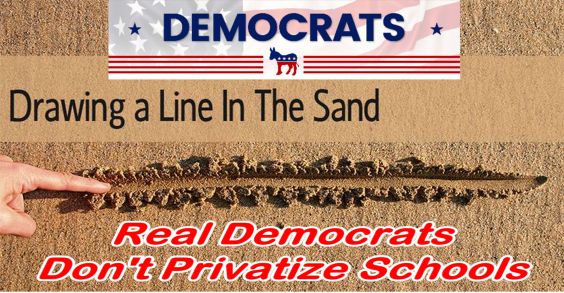AFC Statement on Weingarten-Edelman Op-Ed

The American Federation for Children, the nation’s voice for educational choice, released the following statement in response to the Los Angeles Times op-ed from Randi Weingarten and Jonah Edelman.
Statement from Kevin P. Chavous, founding board member and executive counsel for the American Federation for Children:
Today’s op-ed by American Federation of Teachers President Randi Weingarten, and Stand for Children President Jonah Edelman is a disservice to millions of parents and children across the nation who want nothing more than equal access to a quality education.
The op-ed is full of hyberbole and outright inaccuracies.
First, the headline is rich with irony. It is school choice–directly empowering parents to choose the best educational environment for their child–that is the most democratic of ideas. Rather than undermining public schools, choice helps public schools by virtue of having to compete with other options. Only among the K-12 establishment would competition be considered undermining public schools.
Second, the Administration’s FY 2018 budget proposal does not “siphon billions of dollars from public schools to fund private and religious school vouchers.” It is not “diverting $1 billion into voucher programs.” These are completely false statements. The Administration’s budget proposes $1.4 billion for school choice–$1.15 billion of which is for public school choice. Moreover, all but $250 million of these proposed resources would remain in public schools.
Third, the op-ed states “facts show that where vouchers have been into practice on a meaningful scale, they hurt student learning.” The op-ed also cites a recently released study of first year data from the U.S. Department of Education’s Institute for Education Sciences saying it “adds to a growing body of education research that concludes vouchers may harm rather help student achievement.” These too are completely false statements.
Leaving aside the obvious fact that parents themselves have chosen to participate in private school choice programs, the body of research on these programs proves they work for children fortunate enough to participate.
Prior to the IES report, there have been 15 empirical studies examining academic outcomes for students participating in private school choice using random assignment, the “gold standard” of defensible social science:
- 10 found improved test scores for school choice participants
- 3 found no significant effect for school choice participants
- 2 found negative impact in the early years of study for school choice participants
21 studies examined school choice and how it impacts academic outcomes in public schools:
- 20 found that school choice improved public school academic outcomes
- 1 found no significant effect on academic outcomes from school choice
Finally, the School Superintendents Association “research” into states with existing tax credit scholarship programs and how some “donors have been able to make a profit off the backs of taxpayers and ultimately kids.” Perhaps Weingarten and Edelman are unaware of how tax credit scholarship programs work. Corporate and individual donors pay state taxes. They make a contribution to a local non-profit that provides scholarships for eligible children to attend a private school of their parents choice. They get a tax credit, they don’t make a profit. Parents and children across the nation would be fortunate indeed if the Administration and Congress were to adopt a federal tax credit because it would facilitate access to a quality education for another 1 million students–most of whom will graduate and go on to college as the body of research into these programs clearly demonstrates.
Take away the hyperbole and inaccuracies, what Randi Weingarten and Jonah Edelman truly oppose is giving parents, especially low-income parents, the ability to choose something other than their neighborhood traditional public school. While some of these neighborhood schools may be terrific schools, many are clearly not, which is why millions seek other options. The teachers’ unions oppose choice in education–period. The fact that organizations like Stand for Children and Democrats for Education Reform prefer to stand with the teachers’ unions rather than standing with the 3.5 million children in charter schools and private choice programs, and the millions more who desperately want access to better options, speaks volumes.




